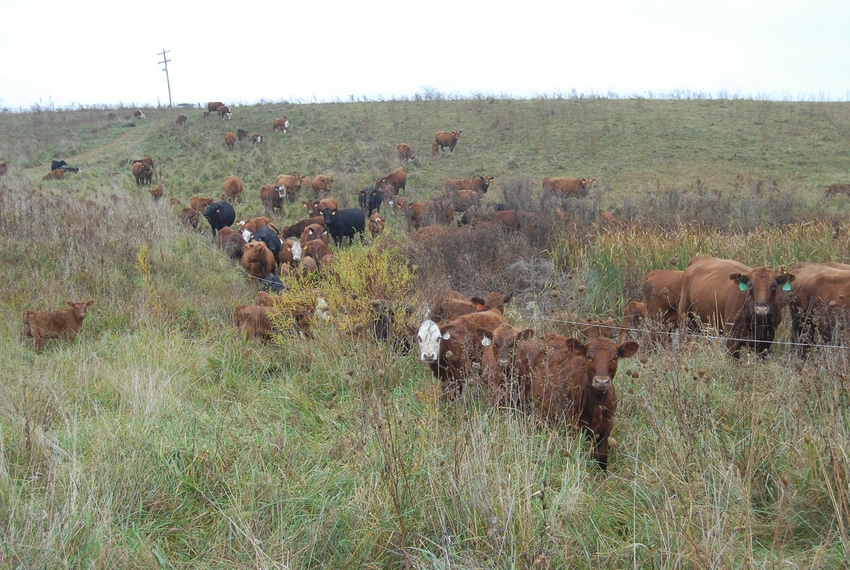
Last week when I was at a meeting in Bismarck, North Dakota, I heard a fascinating success story from Russell Hedrick, a first-generation farmer from Catawba County, North Carolina.
In 2016 Hedrick won the dryland division in the 2016 North Carolina Corn Yield Contest with 318.5 bushels per acre. His corn and soybean yields are typically 20-30% higher than the county average, and over time he’s been able to reduce fertilizer costs by more than $70 per acre thanks to the nutrient boosts derived from cover cropping. He says he spends $20 to $45 per acre on his cover crops.
That's the punch line: He is a soil-health farmer using multi-species cover crops and limited inputs. He said the more he goes down the soil health path, the more he's able to cut inputs.
Hedrick's is one more story that disproves the longstanding lie that alternative farming methods can't compete with high-input modern agriculture. It's the same story I've been preaching for years about grazing management. The better we manage it, the higher the production and the lower the costs.
This all brings to mind for me the mantra we hear from various sources about how the American farmer must feed the world's growing population. Bull hockey!
In the first place, the farmer or rancher is a business person first and foremost and therefore has one primary and necessary goal: Make a solid net profit. Without that, the business disappears.
Therefore, the number of people a producer feeds is immaterial.
Further, there is arguably way more than enough food in the world already to feed a much larger population than we currently have.
An organization called The World Counts says the food wasted by the United States and Europe alone could feed the world 3 times over.
In 2011 Time magazine's online site said about 1.3 billion metric tons of food per year is either lost on the production side of the world food supply chain, or wasted on the consumption side each year. The authors claimed that’s about one-third of total edible food produced for humans.
The Food and Agriculture Organization of the United Nations to this day says roughly one third of the food produced in the world for human consumption every year — that same 1.3-billion-ton figure — gets lost or wasted.
Whether or not this and many more groups that say the same things are repeating hearsay, I cannot know, but if we accept this as generally true, it tells us there is no problem "feeding the world."
It could be argued there is a food inequality (again if we use the available statistics). Not everyone in the world gets enough to eat, and some people spend a great proportion of their income to buy meager supplies of foodstuffs. However, the term "food inequality" is often used as a political football with ties to the feed-the-world mantra, and always by the same people, corporations and non-governmental organizations.
The truth appears to be that people in poorer countries pay much more of their income for the food they eat, and are statistically more likely to be insufficiently fed from a standpoint of caloric count.
In the end, I place the blame for these inequities on those globalists who manipulate money supplies and governments, and who work to destroy the greatest positive force in the history of the world -- free and open capitalism. I believe it is an accurate and winnable argument that capitalism, even our own tainted version of it, is the primary force that built the United States into such a copious food producer and created a middle class with an historically rare degree of wealth.
We also know the nutrient quality of our food has been declining for many years, and that healthier soils build healthier animal feeds and healthier human foods.
Friends, this is the path forward. Embrace it and learn.
About the Author(s)
You May Also Like




